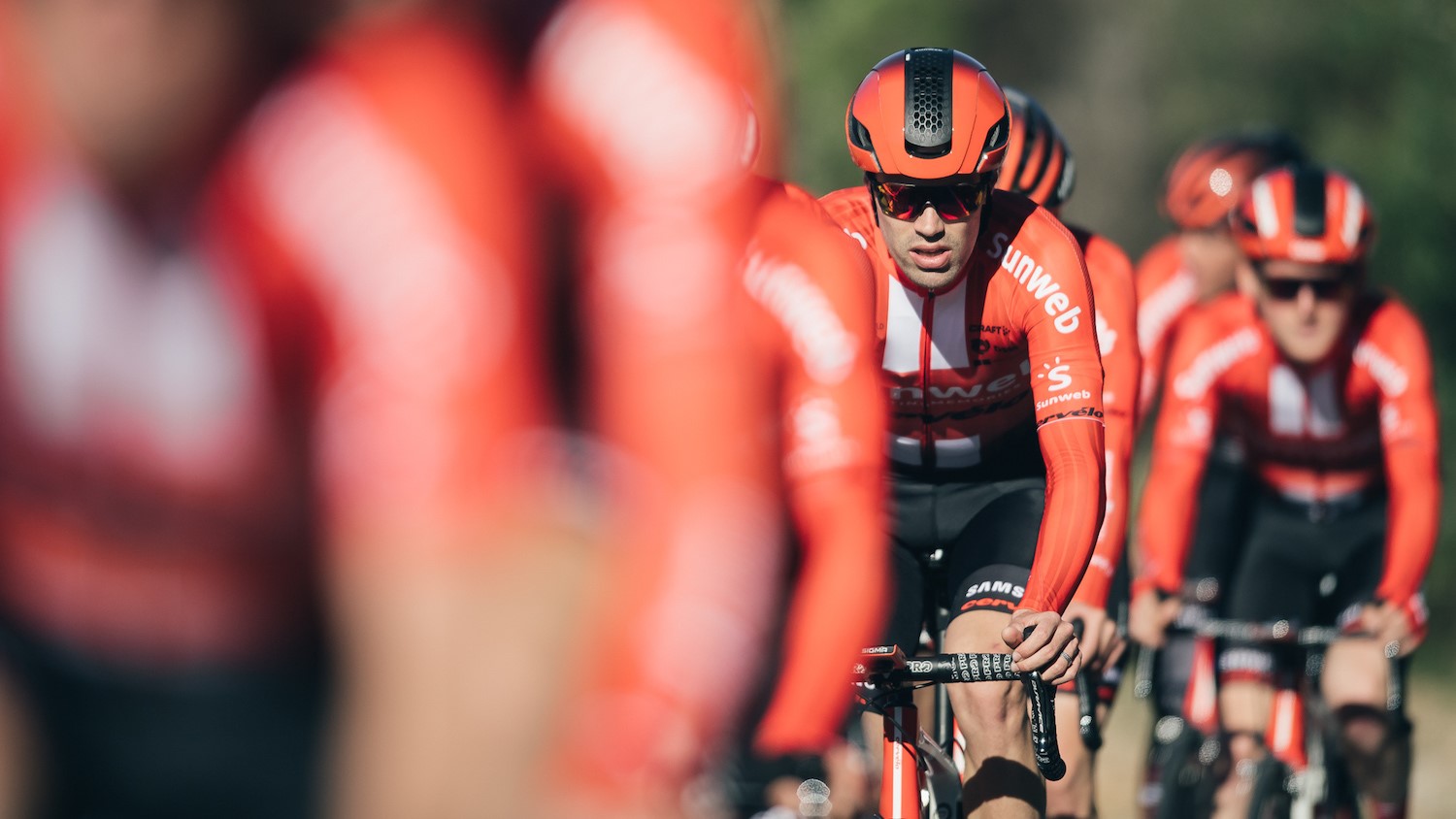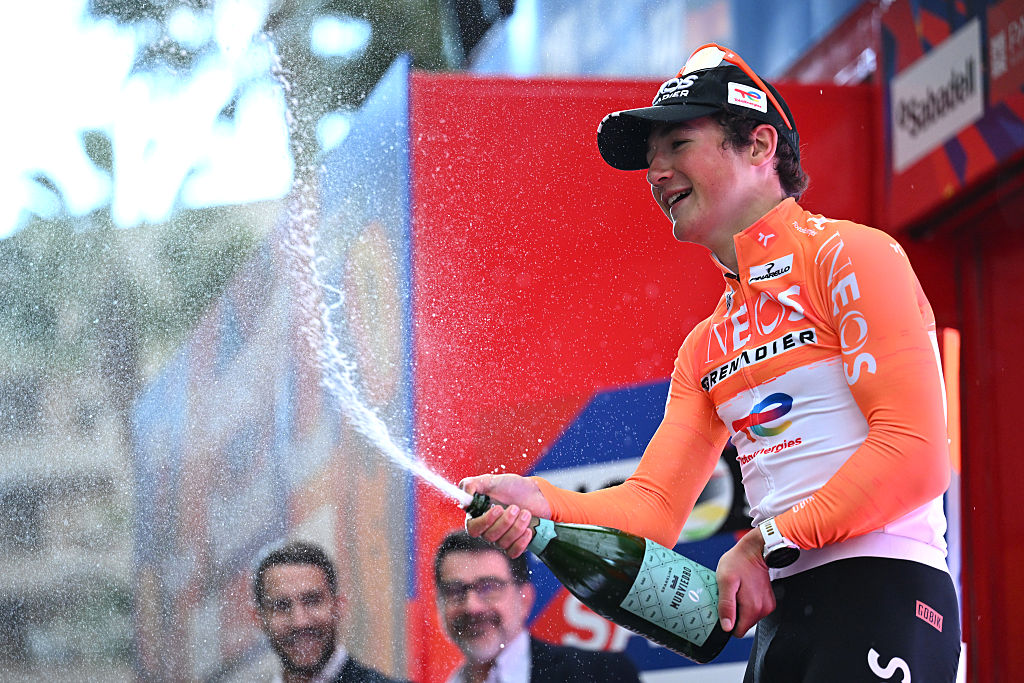Sunweb: Giro d'Italia 'gets' how to create exciting racing - Tour de France doesn't
'In the Tour, you see the race stays locked, for hours and hours' says Spekenbrink
The latest race content, interviews, features, reviews and expert buying guides, direct to your inbox!
You are now subscribed
Your newsletter sign-up was successful

Tom Dumoulin’s Sunweb team have criticized the Tour de France organisers, ASO, for encouraging unspectacular racing, arguing that the Giro d’Italia 'gets it' when it comes to designing an attractive parcours.
After victory at the Giro d’Italia in 2017 and second place this year, logic suggested 2019 would be the year Dumoulin placed all his eggs in the Tour de France basket, but he and his team have made the decision to focus on the Giro once again given the contrasting nature of the two routes. There will be three time trials in Italy, totaling 58.5km against the clock, while in France there will be just one individual time trial of 27km, along with a team time trial.
The number of time trialling kilometres in the Tour has dropped noticeably in recent years, just one tactic in ASO’s bid to break open the racing after several years of domination by Team Sky.
However, Sunweb boss Iwan Spekenbrink, who is also the president of the association of professional cycling teams (AIGCP), believes cutting back on time trialling actually has the opposite effect.
"In the Tour, you see the race stays locked, for hours and hours. It’s the same repetition; everyone does not want to lose time, so they keep waiting until the end. In the Giro in the last years it was proven that the best climbers really used the mountains earlier to gain time," he told Cyclingnews.
"You need a better balance. You need fantastic tough mountains and you need demanding time trials to open up the race. The moment you have natural differences from a variation of disciplines, you get a more open race."
Spekenbrink picked out Simon Yates’ performance at this year’s Giro as the "perfect example". Though the Briton would ultimately crumble dramatically two days from Rome, he was a constant attacker, even in the maglia rosa of overall leader, winning three stages as preached the necessity of gaining as much time on Dumoulin as possible ahead of the stage 16 time trial.
The latest race content, interviews, features, reviews and expert buying guides, direct to your inbox!
"Mitchelton-Scott rode a perfect Giro," Spekenrbink said. "They controlled the race the same, like Sky in the Tour, but because of the profile of the parcours with this balance between big mountains and challenging time trials, their leader was challenged to not wait until the last five minutes. Even in the leader’s jersey he kept attacking to make time. That makes for exciting racing.
“It’s the fact that the in the Tour the pure climbers only need to show they’re better climbers in the last five minutes. But if you challenge them to show it earlier, and to take a bigger risks with it, then you open up the race. If the best climbers only have to show it in the last five minutes, the differences stay small. If you have greater natural differences from the time trials, people have to get out of their defense to make up time.
"You see here the clear difference. RCS has this view, which is successful, and it’s exciting racing. The Giro really gets that, and that’s how they design their parcours – with both time trials and with great mountains. The Tour goes the other way, and you see the correlation that races are being locked. It’s nothing to do with power metres or teams controlling, it’s to do with everyone keeping on waiting until the very end."
It is often said that riders race more conservatively at the Tour given that it is overwhelmingly the most important event of the year for teams and their sponsors. The theory goes that seventh place, for example, at the Tour is far more valuable than seventh place at the Giro, so riders are more likely to settle for what they've got and not put it under any risk by striving for more.
"The fact of matter and the mindset is that it is the same for any big, big goal, whether it’s the Giro or the Tour, if you spend months to go to a race to win," Spekenbrink countered. "Because then there is the pressure, of how do you get the best result? Because of the difference in the profile of the parcours, the racing style of the Tour does not help you win the Giro."
Power Meters
Part of ASO’s push to enhance the spectacle of the Tour de France has been the call for a ban on power meters. They argue that these tools, which measure in real time how much power riders are pushing through the pedals, encourage robotic racing, the suspicion being that riders judge their efforts according to figures on a screen, rather than racing more instinctively.
Spekenbrink again feels ASO’s concerns are misguided.
"They suggest taking away power metres, instead of focusing on what they have under their control – the parcours. You see clearly that the Giro, with their love and passion for cycling, focus on things they can influence and always look for perfect balance between those majestic climbs and demanding time trials."
There is also the matter of money, and that’s of particular concern to an AIGCP president. Every WorldTour team now has a power meter sponsor, while some are also selling data to broadcasters so that real-time power numbers can be seen on television screens.
"This is a little bit awkward because power metres are assets for the teams. It’s an economic income. For a race organizer to ask somebody else to give up an asset which generates revenue is a bit awkward," Spekenbrink said.
"If you compare it the other way around, it’d be likes teams saying ‘reduce the Tour by one week because then we can spend our energy on only two weeks and it’ll be more attractive’. Or ‘Don’t finish in Paris; finish on a hill and it will be more attractive’. That’s also something that, for all logical reasons, will not be appreciated and will not be asked, because it’s not up to us. That’s the difference in approach between the Giro and the Tour."
So much of cycling’s economic power is concentrated in the hands of ASO, while teams survive almost exclusively on short-term sponsorship arrangements. Asked if ASO’s push for a ban on power meters may in fact be motivated by economic – rather than sporting – concerns, and a desire to maintain the status quo, Spekenbrink said: "That could well be the case. You would have to ask ASO."
ASO can’t simply ban power meters in their races; any ban would have to come from the UCI. Spekenbrink called on the governing body to protects team’s assets and, if they did impose a ban, then to provide financial compensation.
"We hope the UCI will deal very carefully with this subject and unless it’s undoubtedly proven [that they deaden the racing], that they will not be taking away an asset from teams. What we understand from the UCI is that they will certainly protect our rights. They will not ask a right to be given up unless it’s undoubtedly proven. And if so then the party concerned – in this case team and riders – should then be compensated," he said.
"To judge race attractiveness, you need a pragmatic and objective approach. First we need to see ‘is there a real problem already?’ Because there are also really beautiful races. The spring classics have always been beautiful, the Giro is beautiful, so the challenge is really around the Tour, it’s very much linked to the Tour."
Patrick is a freelance sports writer and editor. He’s an NCTJ-accredited journalist with a bachelor’s degree in modern languages (French and Spanish). Patrick worked full-time at Cyclingnews for eight years between 2015 and 2023, latterly as Deputy Editor.

